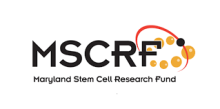NIH Funding Opportunities & Notices
-

Congress created the NIH Common Fund in 2006 for research programs that cut across multiple divisions at NIH — and that no one division could tackle on its own. Common Fund programs focus on urgent NIH priorities, emerging scientific opportunities, and pressing challenges in biomedical research.
- Learn about this year’s Common Fund opportunities.
- The Common Fund’s High-Risk, High-Reward program helps exceptional scientists pursue creative approaches to major research challenges.
Other Scientific Organizations with Recurring Funding
-

Alliance for Regenerative Rehabilitation and Training Center - A national network that supports the expansion of scientific knowledge, expertise and methodologies across the fields of regenerative medicine and rehabilitation through education, training, research support, and funding opportunities.
-

California’s Stem Cell Agency (CIRM) - Funds basic and applied biomedical research focused on developing diagnostics and therapies and on other vital research opportunities that will lead to life-saving medical treatments. Grants are made only to California-based research institutions.
-

Foundation Fighting Blindness – Driving research to find cures for blinding retinal diseases.
-

Maryland Stem Cell Research Fund - The Maryland Stem Cell Research Fund (MSCRF) provides a variety of grant programs for human stem cell research conducted in the state of Maryland.
-

NYSCF - Extramural grants (Investigator & Fellowship Programs) - The New York Stem Cell Foundation supports translational stem cell research through grants to scientists working on stem cell research in the NYSCF laboratory or their own laboratories.
NIH Office of Intramural Training & Education (OITE) Resources
The NIH Office of Intramural Training & Education (OITE) is a division of the Office of Intramural Research (OIR), Office of the Director (OD) and it's mission is to enhance the training experience of students and fellows on all of the NIH campuses. Although this office has traditionally only supported intramural trainees, they have recently extended their resources to extramural trainees as well. They work closely with the Training Offices in the NIH Institutes and Centers to help trainees in the Intramural Research Program (IRP) develop scientific and professional skills that will enable them to become leaders in the biomedical research community.
OITE services current trainees in programs in the NIH IRP, potential applicants to training programs at the NIH, and investigators and staff at the NIH.
OITE Resources Beneficial to Trainees
Video presentation on "Self-Advocacy"
Self-Advocacy - Learning to advocate for yourself is a skill that all scientists should acquire. This video presentation discusses how to set boundaries, communicate expectations, and assert yourself in research groups.
Video presentation on "Preparing for (Virtual) Graduate School Interviews "
Preparing for (Virtual) Graduate School Interviews - This video presentation discusses preparing for Grad school interviews during the pandemic.
Video presentation on "Finding Your Perfect Postdoc Experience"
Finding Your Perfect Postdoc Experience - This video covers everything you need to know about picking the perfect postdoc position; from what to look for, how to apply, and how to strategically plan a postdoc for career success.
Video presentation on "The Business of Science"
The Business of Science - The opportunities for scientists to have a career in industry abound. This video presentation sheds light in the type of companies that hire scientists, the history of pharmaceutical companies, and where current hiring trends are.
Video presentation on "Essential Job Search Documents"
Essential Job Search Documents – There are very few rules that govern the documents you will use when on the job hunt. This video presentation discusses tips for Resumes/Curriculum Vitae & Cover Letters.
Video presentation on "CV vs Resume"
CV vs Resume - In this video presentation, you will get a quick overview of the key differences between a résumé and a CV.
Video presentation on "The Standards Coordinating Body for Gene, Cell, & Regenerative Medicines and Cell-Based Drug Discovery (SCB)"
The Standards Coordinating Body for Gene, Cell, and Regenerative Medicines and Cell-Based Drug Discovery (SCB) – This organization aims to complement the current SDO processes for standards development by engaging regenerative medicine stakeholders to ensure that new or revised standards provide the greatest benefits to the broad regenerative medicine community.